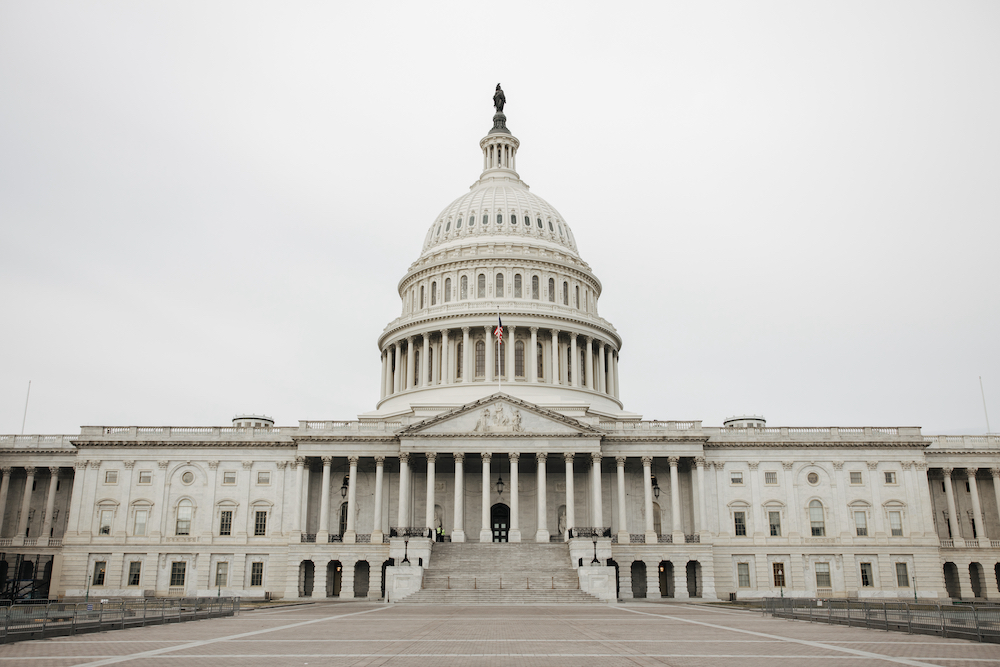
Posted November 13, 2023
By Zach Scheidt
“Fund a War? We Can't Even Afford Peace!”
Here we go again…
For the third time this year, time is running out on our government spending authorization.
Without a new budget or continuing resolution by this Friday, we could be facing yet another government shutdown.
Is anyone else sick of this soap opera?
It reminds me of children fighting in the back seat of the family car while their parents slowly go crazy and consider canceling the whole trip altogether.
(Hypothetically speaking of course… none of us have ever been in that situation, right?)
Once again, I’m left wondering why our elected official can’t do their job to serve the people instead of resorting to power struggles and childish bickering.
As you know, I try to avoid political discussions here at Rich Retirement Letter because of the subject’s divisive nature.
But when it comes to your retirement, it's my duty to keep you up to date.
So let's take a closer look at how this looming government shutdown and current fiscal situation affect your personal financial picture.
Moody's: We Can't Even Afford Peace!
Last Friday, rating agency Moody's Investor Services made headlines by changing its outlook for U.S. debt to "negative."
While short of a technical downgrade, this adjustment was a powerful signal to investors that the U.S. and its ability to pay back debt are vulnerable.
No, the U.S. isn't likely to default… at least not in the technical sense of the word.
I have full confidence the powers that be will ramp up the printing press, create more dollars out of thin air, and pay back all of the government’s soaring debt.
But given our reckless spending, the rise in interest rates this year, and stubbornly high inflation, the U.S. debt situation is going from bad to worse.
I read this morning that the interest Americans pay on government debt will likely exceed defense spending by 2027 — and exceed non-defense discretionary spending by 2030.
Can you imagine carrying so much debt in your personal life that your interest payments overwhelmed your family budget? That would be reckless!
Yet, the politicians in Washington continue to spend as if there are no consequences. Now we're potentially on the hook to fund wars in two different areas of the world.
To quote a friend of mine, "We can't afford to fund another war. Heck, we can't even afford peace!"
So how does this affect your retirement?
I've got my eye on a few investments that can help to protect your wealth even in these challenging circumstances.
Gold, Defense, and Treasury Bonds
Gold is one of the best ways to protect the true value of your wealth as government spending surges.
Over the past few years, gold has been rangebound even as U.S. debt has soared and inflation has run rampant.
Part of the reason gold didn't surge higher is because the U.S. dollar has performed well compared to other currencies.
During times of stress, international investors prefer the relative safety of the U.S. dollar, even though the U.S. hasn’t been keeping its financial house in order.
So a strong dollar has been a headwind for gold, temporarily keeping it from surging to $3,000 an ounce or more.
But the Moody's downgrade may be the first step in halting the dollar's strength compared to other currencies.
Gold is now approaching the key level of $2,000 per ounce. A breakout could trigger a tsunami of capital into gold, driving an exponential surge to $3,000 per ounce and beyond.
Make sure you own some physical gold, some "paper gold" (I prefer GLD), and potentially some gold mining stocks.
Another area that benefits from government spending is the defense sector.
Whether or not we can afford it (and I'm not making a moral argument against it), the U.S. must spend heavily on weapons systems, ammunition, and defense research and development.
There are many defense contractors that directly benefit from this spending.
You can invest in the entire group through the iShares U.S. Aerospace and Defense ETF (ITA).
Or you can pick out individual companies depending on which weapons systems are in high demand as the fronts in Ukraine and Israel evolve.
Finally, it may sound counterintuitive, but there's a ton of profit opportunity in U.S. Treasury bonds.
Both the Fed and market forces have driven interest rates higher. So when you buy a long-term Treasury bond, you're locking in an income stream that’s now above the level of inflation.
More importantly, when stress hits the market, many investors naturally gravitate to the relative safety of U.S. bonds.
So if the situation gets worse, investors may move to the relative safety of long-term Treasury bonds, pushing prices higher.
If you own those bonds today at a cheap price, you'll have the option to sell at higher prices once this appreciation begins.
Yes, it sounds odd to buy U.S. debt as the U.S. debt problem gets worse. But until there’s a safer alternative, investors will flock to Treasury bonds as a defensive play.
Keep these options in mind as we move closer to the U.S. government shutdown.
And consider writing your representatives in Congress, asking them to serve your best interest by representing the people — not one party or another.

How Others’ Incompetence Costs You Big-Time
Posted January 17, 2024
By Byron King

Turning Empty Cubicles Into Houses
Posted January 15, 2024
By Zach Scheidt

"Boring AI": Overlooked Opportunity From CES 2024
Posted January 12, 2024
By Zach Scheidt

5 Must-See Predictions
Posted January 10, 2024
By James Altucher

Welcome to Earth, the Mining Planet
Posted January 08, 2024
By Byron King
